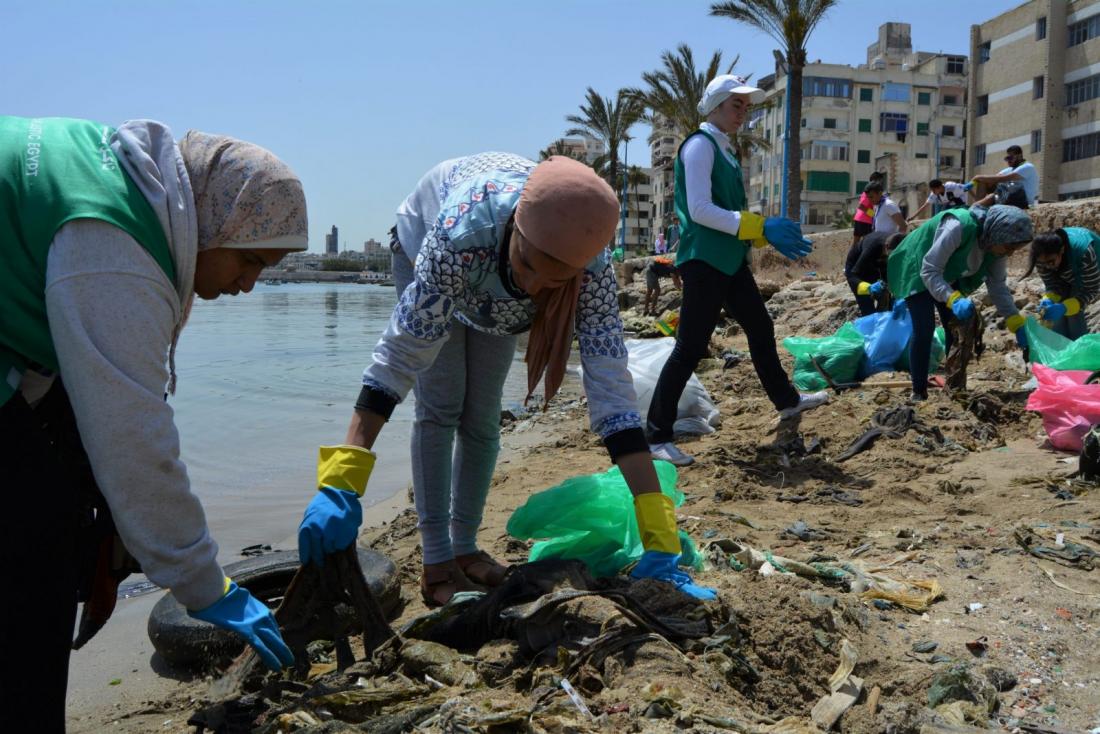GIMED: Banning single-use plastic in Egypt, the formula to tackle plastic pollution by Banlastic

Banlastic Egypt is a social enterprise based in the coastal region of Alexandria (Egypt) that tackles plastic pollution since 2018. They aim to ban single-use plastic by offering alternative products to single-use plastic, creating a base of aware customers through delivering workshops, training, beach clean-ups and various environmental events. They also connect with policy makers to speed up on the process of legislation towards the plastic ban in Egypt.
Manar Ramadan, a young environmental activist based in Alexandria, is behind the creation of this enterprise. “GIMED project was an excellent opportunity for us, as green entrepreneurs, as it supported us in our business needs and green funding to expand more and multiply the impact”, shares Ramadan. Banlastic is receiving training and coaching support in Egypt by Alexandria Business Association, the Egyptian partner of the project.
Since 2018 they have been able to organise 39 workshops, take up 43 clean-up actions, launch 44 green events and gather 13.028 green participants. In terms of technical indicators, they were able to collect 8.037 kgs of plastic waste. “We already started to sell and offer our services before applying to the program. However, by applying to GIMED we aimed at expanding and making our business grow”, she specifies.
In Ramadan’s words, GIMED provided them with more business development skills to grow with their business. “We are not towards the end yet, but the network they are connecting with either potential investors, other green start-ups and the exposure in general is really supporting our growth strategy”, she says. Throughout the training, the young female entrepreneur had the opportunity to test the Switchmed methodology, developed by the Regional Activity Centre for Sustainable Consumption and Production (SCP/RAC).
Since we share the same water resource and environment in the Mediterranean region, Ramadan believes in the importance of collective preservation efforts backed up by a number of business models that develop a similar work and make it economically viable across different regions and Mediterranean cities.
Banlastic has been able to set up partnership with the Ministry of Environment. Their current challenge is to grow in international markets by offering alternative products, but they are still looking for consultancy in that part. “Work day and night to make it happen, but do not also forget that you need to add some self-are so you recharge your energy as an entrepreneur to keep going in the rally”, she reminds.









